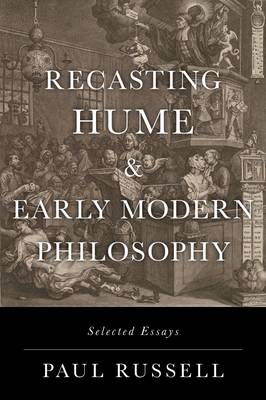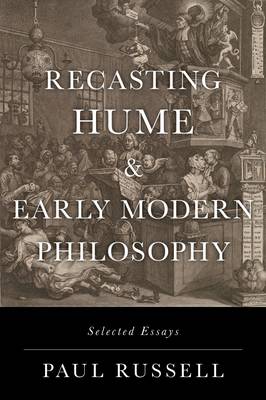
- Afhalen na 1 uur in een winkel met voorraad
- Gratis thuislevering in België vanaf € 30
- Ruim aanbod met 7 miljoen producten
- Afhalen na 1 uur in een winkel met voorraad
- Gratis thuislevering in België vanaf € 30
- Ruim aanbod met 7 miljoen producten
Zoeken
€ 257,95
+ 515 punten
Omschrijving
In this collection of essays, philosopher Paul Russell addresses major figures and central topics of the history of early modern philosophy. Most of these essays are studies on the philosophy of David Hume, one of the great figures in the history of philosophy. One central theme, connecting many of the essays, concerns Hume's fundamental irreligious intentions. Russell argues that a proper appreciation of the significance of Hume's irreligious concerns, which runs through his whole philosophy, serves to discredit the deeply entrenched framework for understanding Hume - and much of early modern philosophy - in terms of the idea of "British Empiricism". In a substantive introduction, Russell outlines how his various insights overlap and connect to each other. The volume is organized thematically into five sections: metaphysics, free will, ethics, religion, and general interpretations of Hume's philosophy. The collection also features a previously unpublished essay on Hume's atheism and an essay on Adam Smith's views on religion and ethics that has not been previously published in English. Recasting Hume and Early Modern Philosophy presents the reader with Russell's substantial and significant set of interconnected observations and insights on the matters and figures of the greatest importance in early modern philosophy. These essays not only provide different and original perspectives on the subject, they also show that the various issues addressed are very relevant to each other, as well as to a number of major topics in contemporary philosophy.
Specificaties
Betrokkenen
- Auteur(s):
- Uitgeverij:
Inhoud
- Aantal bladzijden:
- 520
- Taal:
- Engels
Eigenschappen
- Productcode (EAN):
- 9780197577264
- Verschijningsdatum:
- 27/07/2021
- Uitvoering:
- Hardcover
- Formaat:
- Genaaid
- Afmetingen:
- 163 mm x 238 mm
- Gewicht:
- 893 g

Alleen bij Standaard Boekhandel
+ 515 punten op je klantenkaart van Standaard Boekhandel
Beoordelingen
We publiceren alleen reviews die voldoen aan de voorwaarden voor reviews. Bekijk onze voorwaarden voor reviews.











